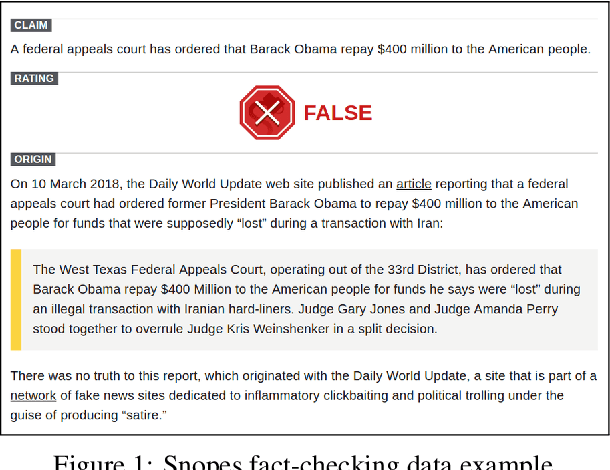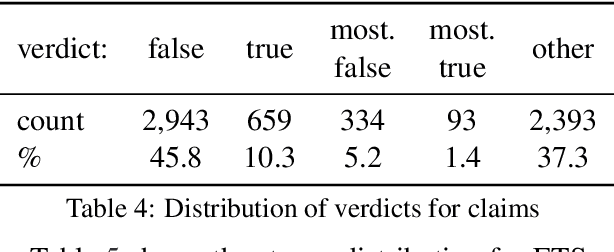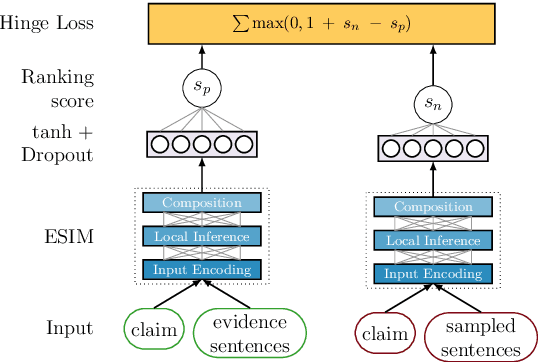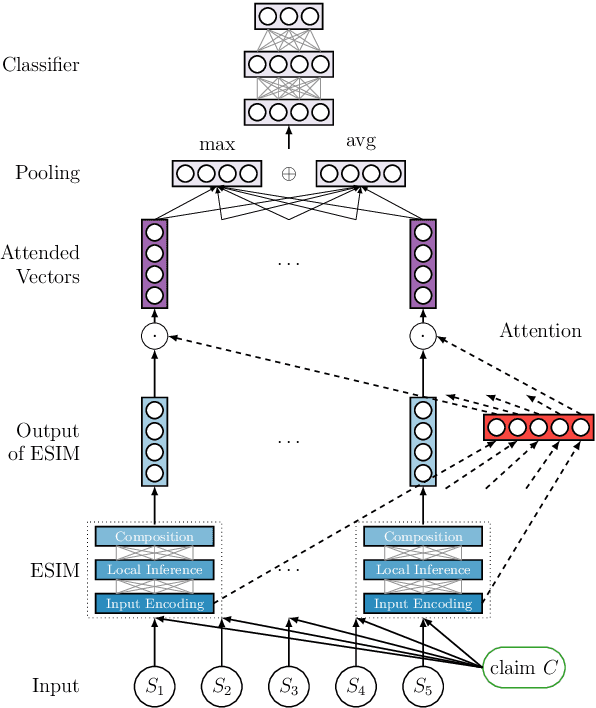Zile Li
A Richly Annotated Corpus for Different Tasks in Automated Fact-Checking
Oct 29, 2019



Abstract:Automated fact-checking based on machine learning is a promising approach to identify false information distributed on the web. In order to achieve satisfactory performance, machine learning methods require a large corpus with reliable annotations for the different tasks in the fact-checking process. Having analyzed existing fact-checking corpora, we found that none of them meets these criteria in full. They are either too small in size, do not provide detailed annotations, or are limited to a single domain. Motivated by this gap, we present a new substantially sized mixed-domain corpus with annotations of good quality for the core fact-checking tasks: document retrieval, evidence extraction, stance detection, and claim validation. To aid future corpus construction, we describe our methodology for corpus creation and annotation, and demonstrate that it results in substantial inter-annotator agreement. As baselines for future research, we perform experiments on our corpus with a number of model architectures that reach high performance in similar problem settings. Finally, to support the development of future models, we provide a detailed error analysis for each of the tasks. Our results show that the realistic, multi-domain setting defined by our data poses new challenges for the existing models, providing opportunities for considerable improvement by future systems.
UKP-Athene: Multi-Sentence Textual Entailment for Claim Verification
Sep 10, 2018



Abstract:The Fact Extraction and VERification (FEVER) shared task was launched to support the development of systems able to verify claims by extracting supporting or refuting facts from raw text. The shared task organizers provide a large-scale dataset for the consecutive steps involved in claim verification, in particular, document retrieval, fact extraction, and claim classification. In this paper, we present our claim verification pipeline approach, which, according to the preliminary results, scored third in the shared task, out of 23 competing systems. For the document retrieval, we implemented a new entity linking approach. In order to be able to rank candidate facts and classify a claim on the basis of several selected facts, we introduce two extensions to the Enhanced LSTM (ESIM).
 Add to Chrome
Add to Chrome Add to Firefox
Add to Firefox Add to Edge
Add to Edge